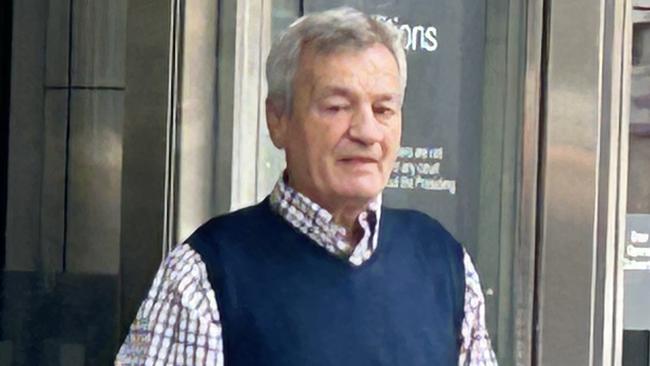Ionel Tunescu fronts court for dangerous driving causing death
A truckie who changed lanes on the Monash Freeway, clipping a woman’s car, causing her to swerve into a prime mover, killing her, has faced court.

South East
Don't miss out on the headlines from South East . Followed categories will be added to My News.
A Melbourne truckie who caused the death of a woman described as the “heart” of her family in a horror freeway fatal has dodged jail because of ill health.
Ionel Tunescu, 68, was found guilty by a jury in the County Court on one charge of dangerous driving causing death and was sentenced to a three-year community corrections order last week.
Tunescu was driving an advertising banner truck on the Monash Freeway at Endeavour Hills while on his way to Cranbourne about 8.30am on June 16, 2020, when he changed lanes and clipped a Suzuki Swift driven by 30-year-old Alana Hornhardt.
Ms Hornhardt’s car veered across two lanes and into the path of a prime mover hauling cars.
Firefighter Ashley Girvan witnessed the crash and stopped to help Ms Hornhardt who was unresponsive.

Mr Girvan took her out of the car, placed her on the road and continued with CPR until emergency services arrived.
Ms Hornhardt was pronounced dead at the scene. Breath and oral fluid tests Tunescu provided returned negative readings.
Tunescu told police during an interview two months after the crash he thought Ms Hornhardt’s car came suddenly in front of his truck which forced him to drive into a service lane to avoid a collision.
Judge John Kelly said Ms Hornhardt was the “heart” of her family who has left an unbridgeable chasm in the lives of her father, her siblings, and her grieving partner.
“No sentence I pass can repair that damage, or atone for her loss which is tragic and came out of the clear blue sky.”
Judge Kelly said substantial compelling circumstances where the court could impose a non-custodial sentence existed due to Tunescu’s poor health, fragile psychological condition and low moral culpability.
The judge agreed with three medical professionals that Tunescu’s health problems required close monitoring and treatment that wouldn’t be available in a custodial setting.



